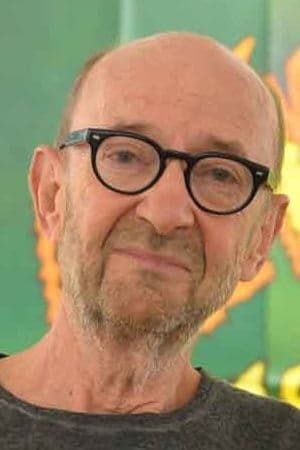Picha (b. 1942)
Alias:
Jean-Paul Walravens
Birthplace:
Bruxelles, Belgium
Born:
July 2, 1942
Jean-Paul "Picha" Walravens (Brussels, Belgium, 2 July 1942) is a Belgian cartoonist, comics artist, animator and film director. He is most famous for his adult animated films, such as Tarzoon: Shame of the Jungle. Jean-Paul Walravens, quickly fascinated by drawing, studied at the Institute of Fine Arts Saint-Luc. In 1960, he contributed his work as a caricaturist and cartoonist for many newspapers and magazines around the world including National Lampoon and The New York Times. During this period, he adopted the pseudonym Picha. A passion for drawing led Picha to the world of comics. He is the author of several books, as Picha at Club Med (1971) or Persona non grata (1975). After this period, he went on to animation. In 1975, he co-directed the film Tarzoon: Shame of the Jungle, a raunchy parody of the Tarzan stories by Edgar Rice Burroughs. The film was a huge success in its home country Belgium and in France, but ran through troubles with the Edgar Rice Burroughs Estate when the estate sued the creators of the film for plagiarism. The estate lost the case when the creators stated that the film was a parody. However, when the film was released in the U.S., the estate demanded that the film title and main character "Tarzoon" be changed due to the film's nature degrading the Tarzan name. In 1979, the now R-rated film was released under the title Shame Of The Jungle, and was rewritten by Saturday Night Live writers Anne Beatts and Michael O'Donoghue and was dubbed by John Belushi, Johnny Weissmuller, Jr., Bill Murray, and several others. Despite these efforts, the film was a critical and financial flop. Picha's next film was the 1980 film The Missing Link. Though it wasn't as successful as Tarzoon, the film was entered into the 1980 Cannes Film Festival. Picha also adapted the film into a comic strip. In 1984, the film was released into the U.S. under the title B.C. Rock. Major changes to the film included newly written dialogue by the comedy duo The Funny Boys (Jim Vallely and Jonathan Schmock), recut footage, different voices, different instrumental score, the absence of the narrator (with the main character telling the story), and nearly all the songs written and performed by Leo Sayer have been replaced by songs by other artists (including Steel Breeze, Hall & Oates, and Rick Wakeman) in order to attract a wider audience. Unfortunately, the film was poorly promoted on video and faded into obscurity. However, this version manages to have a cult following to this day. Picha's future work would never be released in American theaters or any home video format. Picha's next film was 1987's The Big Bang. After the small success of the film, Picha left the movie industry to concentrate on writing for television. Picha's television works included Zoo Olympics (1990–1991), Zoo Cup (1992–1993), and Buddy Buddy... A Dog's life (1995). In 2007, Picha made a comeback with Snow White: The Sequel, a parody of fairy tales, which most animated films were doing at the time. Source: Article "Picha" from Wikipedia in English, licensed under CC-BY-SA 3.0.





